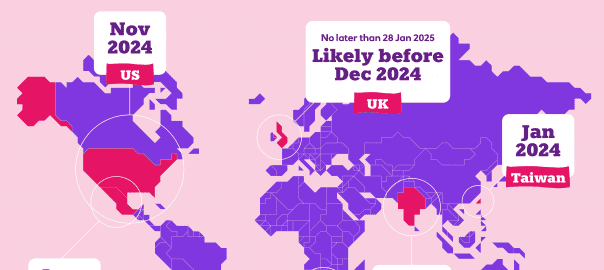Jan. 2, 2024 /Politics/ — 2024 is shaping up to be a bumper year for elections! Here are some noteworthy examples beyond the UK and USA:
High-profile elections:
India: The world’s largest democracy goes to the polls in April-May, electing the Lok Sabha (Parliament) and determining the Prime Minister.
Brazil: October sees the South American giant choose its President and Congress, with incumbent Jair Bolsonaro potentially facing re-election.
Mexico: Combining presidential, Senate, and Chamber of Deputies elections in June, Mexico’s political landscape could see significant shifts.
Other important elections:
Iceland: Presidential election in June.
Belgium: Parliamentary elections in June.
Finland: Presidential election in January.
Liechtenstein: Referendums in January, covering various issues.
Bangladesh: Their January general election saw Prime Minister Sheikh Hasina’s Awami League retain power, raising concerns about democratic backsliding.
Indonesia: Holding its general election in February, Indonesia’s complex political scene offers a diverse and dynamic contest.
Taiwan: In January, Taiwanese citizens chose their President and Legislators, with cross-strait relations remaining a key issue.
Pakistan: February sees provincial elections, influencing the national political climate in this strategically important country.
South Africa: General election in December, a key test for the ruling African National Congress.
Ghana: General election in December, another crucial vote for a major African democracy.
Senegal: Presidential election in February, a closely-watched race in West Africa.
Algeria: Presidential election in December, marking a major political transition in the North African nation.
Now, onto your questions about AI’s influence in elections and how voters can distinguish misinformation:
AI’s influence in election campaigns:
- Micro-targeting: AI can analyze vast amounts of voter data to identify and personalize campaign messages for specific individuals, potentially influencing their voting decisions.
- Fake news and deepfakes: AI can be used to create realistic-looking fake news articles, videos, and audio clips, making it harder to distinguish fact from fiction.
- Automated bots and trolls: AI can be used to automate social media bots and trolls that spread misinformation and manipulate public opinion.
- Campaign analytics and optimization: AI can be used to analyze campaign data in real-time and optimize strategies for maximum impact.
Voters should distinguish misinformation, disinformation from data-driven facts:
- Source check: Always check the source of information, especially before sharing it. Look for reputable news outlets and organizations, and avoid anonymous or biased sources.
- Fact-checking websites: Use fact-checking websites like Snopes, PolitiFact, and FactCheck.org to verify information.
- Be skeptical of sensational claims: If something seems too good or bad to be true, it probably is. Be wary of claims that evoke strong emotions like anger or fear.
- Look for evidence: Ask for evidence to support claims, especially if they seem outlandish.
- Beware of logical fallacies: Be aware of common logical fallacies like straw man arguments, circular reasoning, and appeals to emotion.
- Cross-check information: Compare information from different sources to see if it matches up.
- Think critically: Don’t just accept information at face value. Think critically about what you’re reading or hearing and ask yourself if it makes sense.
By being aware of how AI is being used in elections and by practicing critical thinking, voters can help to ensure that they are voting based on accurate information and facts.
Remember, it’s always best to do your own research and consult multiple sources before forming an opinion.
Remember, this list is not exhaustive, and numerous other countries will hold elections throughout 2024. Staying informed about these diverse political events can offer valuable insights into global trends and dynamics.

